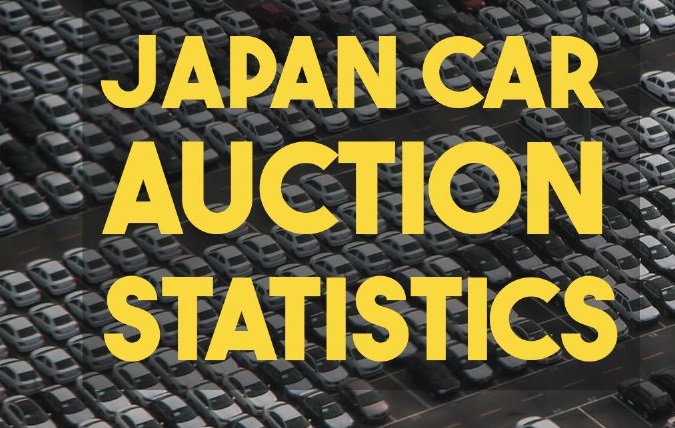
From Okinawa to Sapporo, there are forty reputable auction houses spread out across more than two hundred different locations in Japan. USS, TAA, JAA, CAA, and other similar events are among the most well-known auto auctions.
Why have Japanese auto auctions attracted such a large international following? The primary reason for this is that experienced auction inspectors check each vehicle and write detailed comments on the auction sheet of each vehicle; as a result, all vehicles up for sale at the auctions get their own distinctive lot numbers and auction lists that characterize the car's current state.
A correct translation of the auction sheet or even a fundamental understanding of the symbols used on the auction sheet can assist you in making the best possible bid for the vehicle you are interested in. The availability of car statistics is one of the program's strengths. These statistics allow users to determine the current market price of the vehicle of their choice, complete with information about the vehicle's make, model, chassis ID, year, mileage, color, and other attributes.
In Japan, only registered companies have direct access to auto auctions, which enables them to place bids on behalf of either dealers or private customers. In order to participate in auctions, you will need to first register on our website, which will not take more than a minute of your time, and then provide us with the lot number and the price at which you are willing to bid.
The following agencies are represented on the auction list: IAA, JAA, JU, KAA, KCAA, LAA, MIRIVE, NAA, SAA, TAA, USS, and ZIP. Nearly ninety percent of the automobiles are being offered for sale through online auctions. In most cases, real time is being referred to, and the time it takes to sell a car can range anywhere from 20 to 30 seconds.
A seller will propose a price for the vehicle, known as the urikiri price, which literally translates to reserved price. If the desired bid does not reach the urikiri price, then the car will not be sold because there are fewer competitors. From this vantage point, we can make a phone call to the auction house and attempt to buy the car through direct negotiation. Pressing the button repeatedly until an offer is submitted constitutes a bid. Depending on the auction house, each click of the button is worth between 3, 000 and 5, 000 yen.
In the event that the customer purchases the vehicle, he will immediately be notified about the transaction at either his phone number, email address, or via other means such as Skype or phone.
IPA, Isuzu, LUM, NAA Nyusatsu, Nissan Osaka, NPS, ORIX, SAKURA, and ZERO are all participating in the auction.
Bids are considered open until the end of the Tender Bid Auction. The auction usually starts at noon or five in the afternoon and runs until eight in the evening, though it can run into the next day on rare occasions. You are only allowed one bid at this auction, and you will not be able to view the current bids of other buyers. The highest bidder for the vehicle will be selected as the winner.
Due to the fact that the business has already acquired a vehicle, we politely request that you refrain from withdrawing any bids after they have been accepted. In the event that the reservation is canceled, you will lose the deposit because there is an additional fee for cancellation. Please proceed with caution, and if you have any questions, feel free to ask the sales staff for assistance.
There are two places where you may find any automobile for a set price: One Price geuhan or Dealer Stock. If the consumer wishes to purchase the automobile from dealer stock, he accepts the stated price. It may usually be simply purchased with only one click. The local market is the dealers' top focus, thus they only refuse to sell units to export corporations in the back cases. Please check the availability of the desired vehicles at any moment.
In-depth details regarding the cars up for grabs at these car auctions, such as make and model, year, mileage, condition, and any upgrades or aftermarket components added, are provided in Japan automobile auction reports. This information is often supported by photos or videos of the cars, so potential buyers can get a better idea of how they look and how well they are kept.
Buyers can benefit greatly from Japan car auction reports because of the information they provide. By providing buyers with a wealth of information regarding the available cars, they can better assess their worth and determine whether they are worthwhile investing in. In addition, buyers can use the reports as a resource to learn more about any concerns they may have with a given vehicle. This can help them negotiate a better price or avoid buying a car that is defective.
With its reputation for producing high-quality cars and cutting-edge technology, Japan is a major player in the global automotive market. Japanese automobile auctions are consequently highly sought after by auto enthusiasts and collectors from all over the world. Many of the most sought-after vintage and modern Japanese automobiles are not available for sale outside of Japan, making these auctions a once-in-a-lifetime chance to own a piece of automotive history.